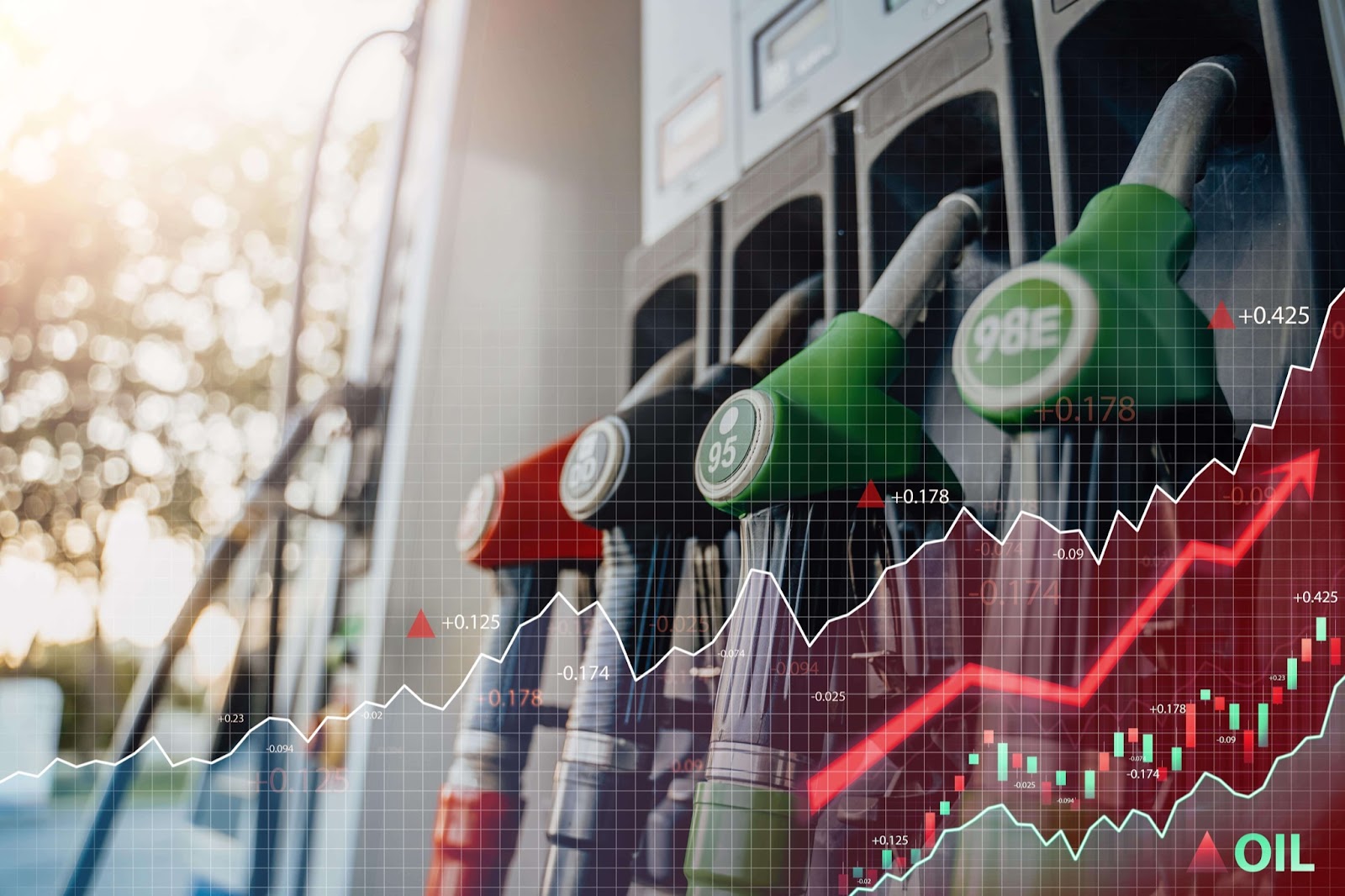
The oil and gas industry stands at a critical juncture, where traditional practices must evolve to meet modern demands for efficiency, sustainability, and technological advancement.
As a cornerstone of the global economy, the sector is continuously seeking innovative solutions to tackle challenges such as environmental impact, regulatory pressures, and fluctuating market conditions.
Here, we explore the key trends driving innovative ideas in the oil and gas industry, emphasizing the importance of sustainable practices, the barriers to innovation, and the future outlook of technological advancements in this sector.
Understanding the Need for Sustainable Practices in Oil and Gas
The environmental and economic pressures on the oil and gas industry are immense. The sector is under scrutiny from regulators, investors, and the public to adopt more sustainable practices.
Environmental Impacts of Traditional Oil and Gas Operations
Traditional oil and gas operations have long been associated with significant environmental impacts, including greenhouse gas emissions, oil spills, and habitat destruction. As global awareness of climate change intensifies, there is a growing demand for the industry to adopt sustainable practices that minimize ecological footprints and ensure long-term environmental stewardship.
Economic and Regulatory Pressures
The economic landscape for the oil and gas industry is increasingly shaped by regulatory frameworks aimed at reducing carbon emissions and promoting cleaner energy sources. Governments worldwide are implementing stringent regulations and offering incentives for the adoption of sustainable technologies. These measures, while challenging, also present opportunities for innovation within the industry.
Corporate Social Responsibility
Corporate social responsibility (CSR) has become a pivotal aspect of business operations in the oil and gas sector. Companies are now more accountable to their stakeholders and the public, driving them to invest in sustainable technologies and practices. By prioritizing CSR, oil and gas companies can enhance their reputation, attract investment, and contribute to global sustainability goals.
Barriers to Creating Innovative Ideas in the Oil and Gas Industry
Despite the pressing need for new innovative ideas, several barriers hinder the adoption of new technologies in the oil and gas industry.
High Capital Investment Requirements
Innovative ideas in the oil and gas industry often require substantial capital investment. The development and implementation of new technologies, such as advanced drilling techniques and digital oilfields, demand significant financial resources. This high cost can be a deterrent, especially for smaller companies or those facing economic constraints.
Regulatory and Environmental Compliance Challenges
Navigating the complex landscape of regulatory and environmental compliance is a significant barrier to innovation. Companies must ensure that new technologies and practices adhere to stringent regulations, which can slow down the innovation process and increase operational costs.
Resistance to Change Within Established Industry Practices
The oil and gas industry has long relied on established practices and technologies. Resistance to change is common, as stakeholders may be wary of the risks associated with adopting new methods. Overcoming this inertia requires demonstrating the clear benefits and long-term gains of innovative solutions.
Market Volatility and Fluctuating Oil Prices
The volatility of the oil market poses a considerable challenge to innovation. Fluctuating oil prices can impact the financial stability of companies, making it difficult to commit to long-term investments in new technologies. This uncertainty necessitates a flexible approach to innovation, with a focus on resilience and adaptability.

Key Trends Driving Innovative Ideas in the Oil and Gas Industry
Despite these challenges, several key trends are driving new innovative ideas in the oil and gas industry, helping it to evolve and adapt to modern demands.
1. Digital Oilfields: Enhancing Efficiency and Reducing Costs
The integration of digital technologies in oilfields is transforming the industry by enabling real-time data analysis, predictive maintenance, and remote monitoring. Digital oilfields enhance operational efficiency, reduce costs, and improve decision-making processes. These advancements allow companies to optimize resource management and respond swiftly to emerging challenges.
2. Advanced Drilling Technologies: Enhancing Precision and Safety
Innovations in drilling technologies are crucial for enhancing precision and safety in oil extraction. Techniques such as directional drilling and automated drilling systems increase accuracy, reduce environmental impact, and minimize the risks associated with manual operations. These technologies also enable access to previously unreachable reserves, expanding the industry’s potential.
3. Artificial Intelligence and Machine Learning: Optimizing Operations
Artificial intelligence (AI) and machine learning (ML) are revolutionizing the oil and gas industry by optimizing operations and improving efficiency. AI-driven predictive maintenance can foresee equipment failures, reducing downtime and maintenance costs. ML algorithms analyze vast amounts of data to enhance exploration and production strategies, leading to better resource utilization.
4. Hydraulic Fracturing and Enhanced Oil Recovery (EOR): Maximizing Output
Hydraulic fracturing and enhanced oil recovery (EOR) techniques are vital for maximizing output from existing wells. Advances in fracking fluids and EOR methods increase the efficiency of resource extraction and extend the lifespan of oil fields. These innovations contribute to meeting global energy demands while reducing the need for new drilling projects.
5. Sustainable Energy Solutions: Transitioning to a Low-Carbon Future
The oil and gas industry is increasingly adopting sustainable energy solutions to transition to a low-carbon future. The integration of renewable energy sources, such as solar and wind, with traditional oil and gas operations reduces carbon emissions and promotes sustainability. Additionally, carbon capture and storage (CCS) technologies are being developed to mitigate the environmental impact of fossil fuel consumption.

The Future of Innovative Ideas in the Oil and Gas Industry
The future of innovative ideas in the oil and gas industry is poised to be shaped by continuous technological advancements and a strong emphasis on sustainability. As companies invest in digital transformation and adopt AI-driven solutions, operational efficiencies will improve, and environmental impacts will be minimized.
Collaboration across the industry will be essential to overcome challenges and drive forward sustainable practices. The industry’s commitment to innovation will determine its ability to meet global energy demands while aligning with environmental and regulatory expectations.
Sign Up and Explore the Entrapeer Platform
Generating innovative ideas in the oil and gas industry is critical for addressing environmental and economic challenges, enhancing operational efficiency, and transitioning to a sustainable future. The industry must embrace new technologies and innovative practices to remain competitive and relevant.
Collaboration across the oil and gas industry is crucial to advancing sustainability. The entrapeer platform can play a pivotal role in this transformation by connecting enterprises with the right startups and innovative solutions. By leveraging AI-powered insights and real-time market intelligence, entrapeer helps companies discover and implement the best emerging technologies to address their unique challenges.
We invite you to explore the entrapeer platform and see how our comprehensive use-case database and AI-driven insights can help your organization drive innovation and sustainability. Contact us today to learn more about how entrapeer can support your journey towards a more innovative and sustainable future in the oil and gas industry.
Innovation is crucial in the oil and gas industry to improve operational efficiency, reduce costs, and minimize environmental impacts. Technological advancements enable companies to meet regulatory requirements, address market volatility, and enhance safety and precision in extraction processes.
Traditional oil and gas operations can lead to greenhouse gas emissions, oil spills, and habitat destruction. These activities contribute to climate change and environmental degradation, underscoring the need for sustainable practices and innovative technologies to mitigate these impacts.
AI and machine learning optimize operations by enabling predictive maintenance, improving exploration and production strategies, and enhancing overall efficiency. These technologies analyze vast amounts of data to provide actionable insights and better resource utilization.
Sustainable energy solutions include the integration of renewable energy sources, such as solar and wind, with traditional oil and gas operations. Carbon capture and storage (CCS) technologies are also being developed to reduce the environmental impact of fossil fuel consumption.

